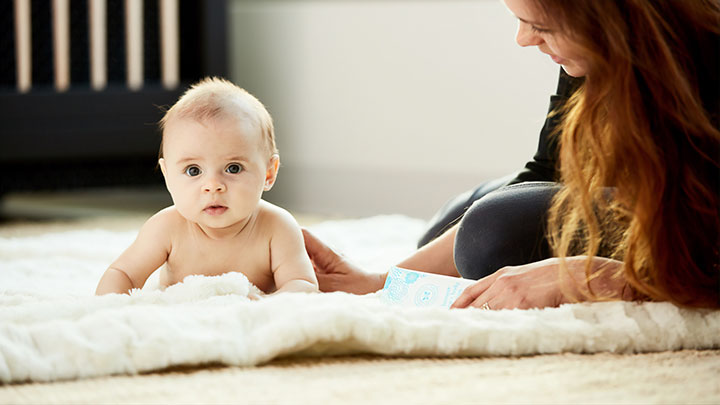Here at Jitbug we’ve noticed something huge; something memorable and something to be proud of in NZ ECE.
We want to give credit where credit is due. Credit to our teachers in New Zealand; specifically, the attitude and heart of our ECE teachers in the last five years.
We know it’s been a tough ride in NZ ECE – actually, tough is an understatement. Shall we go with shocking? Pay rates have stagnated, funding has all but stayed put, and regulations are getting tougher. We have a national teacher shortage and more understanding than ever of how important the first 1000 days are – but often without the support to implement the best practice.
It’s enough to make you bang your head against the wall and throw in teaching for good… and plenty have.
“Let’s not underestimate the power of being connected, and what that means for teachers in Aotearoa today.”
However, it’s time to stop dwelling. It’s time to recognise that this hard journey has given rise to a group of wonderfully passionate and heart-driven teachers who are still here.
Still teaching. Still fighting.
We are resilient. We are zealous. Most importantly, we are connected. Let’s not underestimate the power of being connected, and what that means for teachers in Aotearoa today.

What does connection in NZ ECE mean?
In this case, we’re talking specifically about ECE Kaiako who have remained resilient in the face of adversity. Connection within ECE means remaining open and passionate about the sector; open to new ideas and ways of practice.
Teachers who have managed to stay committed to the sector despite the sometimes seemingly ongoing lack of government support, dedicated to the unique culture of Aotearoa ECE and those that embrace the relationships they form and the beauty that brings to their practice.
Connected to their passion
Kaiako who are connected to their passion (ECE) have one thing in common; commitment. It’s near impossible to be absolutely passionate all of the time. We all have bad days but when we do, we remain committed to our services, the children we care for and the families we work alongside.
Sandra, a teacher from the Hawkes Bay with 25 years experience, has felt a loss of passion several times throughout her career.
“I remember reading an article on passion and difficulties years ago, and that helped me realize it’s not only me who feels that way at times. I recently left a permanent position I had for 6 years, and did 6 months relieving to clear my head and get my passion back.”
We love the way that The Heart School portrays the need for commitment with these beautiful words:
“Commitment can hold the fort when our passion has left the building, and if we feel our commitment waning, remembering our passions (or discovering new ones) kicks it back into gear.”

If you’re feeling disconnected, here are a few ways to realign your heart and get your passion flowing again:
- Have a conversation with a trusted colleague or mentor. Not a rushed job in the staffroom when your breaks align either, a proper chat away from your centre. Coffee is great, wine could be better. Relax, enjoy yourself, and mull things over with someone who believes in you.
- Share what you love with the children in your care - introduce them to sewing, gardening, animals, cooking…treat your centre as a home-away-from-home and make your days enjoyable. Children learn from attentive and engaged adults, and you may spark a new interest among some!
- If Professional Development is an option for you, or more study, investigate how you can broaden your knowledge in an area of ECE that really interests you. You’ll set a new fire in your belly and begin to look at your surroundings with fresh eyes and a new perspective.
- Give relief teaching a go. Yes, we know this might be obvious coming from Jitbug but we also know from experience how motivating a change of scene can be! We often see qualified relievers, feeling a bit lacklustre, come into relieving and find inspiration with new centres, philosophies and practices. They leave to go back to permanent positions with a new vigour and a pep in their step.

Connected to Aotearoa
We also love the fact that the NZ ECE sector is connected to Aotearoa; it’s simply part of who we are.
We are connected to Te Ao Māori, and to the amalgamation of cultures that makes up our wonderful country. We are connected to Papatūānuku and committed to leaving the earth a better place for our tamariki.
It is credit and testimony to the profession (and those working tirelessly in it), that no matter what is thrown in our direction, we keep these values at the core of our teaching practices.
We reflect, we ask questions, we seek answers and we constantly improve our understanding.
Feeling connected to Aotearoa and our cultural makeup doesn’t have to be hard-work, so let’s not over complicate it.
- Talk. Talk to your centre whanau, your local iwi, each other. An open and honest dialogue with each other creates unity and aroha.
- Connect with nature. In your centre – yes absolutely! We’ve all had an enjoyable summer’s day with our toes in the sandpit and the cool splash of water-play. But it’s important we do these things for ourselves too - go for walks in nature, plant a garden, connect to your local surroundings…climb a mountain (or a hill!) if you’re feeling adventurous. Spend time in the beautiful outdoors of Aotearoa and remind yourself how fortunate we are.
- Embrace the journey! We’re all at different stages of understanding bi-cultural practice. Help one another by walking your journey with integrity, an open heart and understanding – and encourage others to do the same.
Connected to each other
Staying connected to our colleagues makes a huge difference in the way we look at our ECE practice over time.
Ever had a super rough day (on a Monday, most likely) and been dreading the thought of getting through the rest of the week?
If you have friendships at work, in online spaces, or even at the centre down the road, that hard week ahead will start to look a lot easier after a coffee and a solid debrief with a fresh perspective.
Kim, with 5 years experience teaching in the Bay of Plenty, experienced a lot of stress at the 3 year mark with pressure around children’s learning outcomes.
“We concentrated on more product rather than process…getting them school ready, lots of individual planning.”
Kim found that it was her connection to the centre environment that needed a change, and sought a position in a centre whose culture suited her much better.
“I [now] work in a mixed age centre. The emphasis is on process and open-ended resources.” She found that building relationships in a centre with personal and professional beliefs that aligned with her own, and keeping fit regularly on her own time, gave her the push she needed to stay committed to growing her practice.
It can also help to embrace the ideologies of our colleagues who have different ideas to us. If we look toward the Tikanga Māori principle of whanaungatanga, we understand that relationship and kinship (through shared experiences and working together) builds a sense of belonging; strengthening each member of the group. Focusing on togetherness and relationships within teams can provide a positive outcome for all Kaiako involved.
Rose Pere describes the concept of whanaungatanga as, “…the principle of working together to support each other across all generations.”
When we are connected to each other within our early childhood centres (with good relationships), we remain open to making decisions and planning experiences that we would otherwise not entertain – broadening the possibility for positive outcomes.
“Characteristics of independence are inconsistent with whanaungatanga. Interdependence with each other rather than independence is the goal” (Williams, N. and Elizabeth Broadley, M.)
Stay connected to one another, professionally and as friends. Forget tiresome “team building” activities and actively build relationships with other ECE professionals that you enjoy spending time with or talking to.

We love hearing your stories and sharing ideas within our own Jitbug community - it’s all about connection! Pop on over to our Jitbug Facebook community, share your ideas and find inspiration when you need that extra drive.
Looking to read more?
Take a look at The Culture of Kindness: A new wave of theory in NZ ECE. As one reader noted “Love this! We do need to start by being kind to ourselves – it’s hard out there at the moment!”
